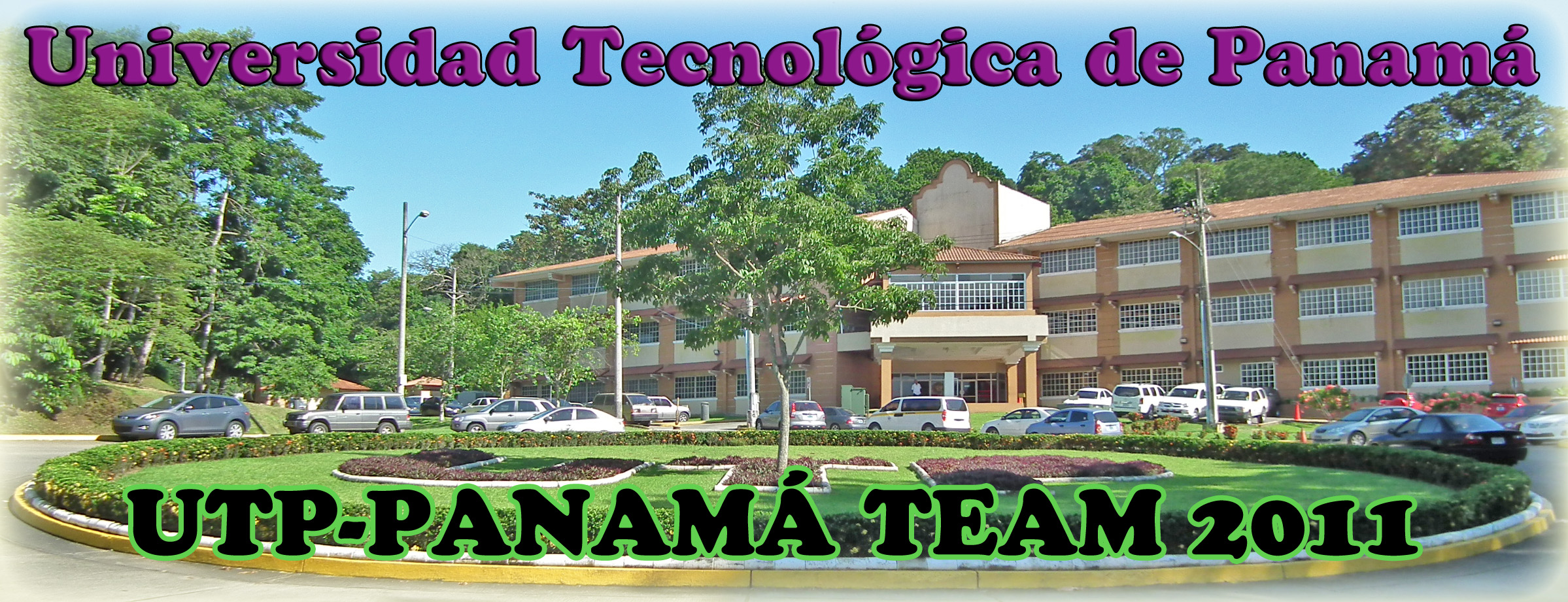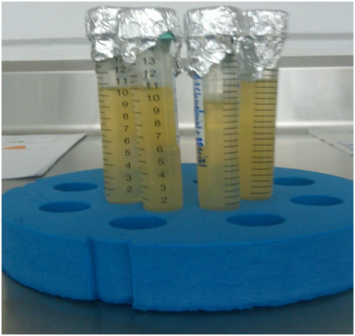Team:UTP-Panama/Experiments
From 2011.igem.org
(→First Experience with BBa_k381001) |
(→First Experience with BBa_k381001) |
||
| Line 32: | Line 32: | ||
| - | [[File:Bristol results.png|left| | + | [[File:Bristol results.png|left|350px|]] |
After 48 hours we noticed that all the tubes for both tests showed no change, including positive and negative controls. Our experiment was based on BCCS-Bristol experiment. While reviewing the experiments of Edinburgh in 2009, who designed the promoter used in the BioBrick BCCS-Bristol, we realized that the promoter express better in minimal essential medium than in LB, but we do not rule out that we could have made a mistake in the experience preparation prevented us from showing the right results, which is why we decided to do the experiment again. | After 48 hours we noticed that all the tubes for both tests showed no change, including positive and negative controls. Our experiment was based on BCCS-Bristol experiment. While reviewing the experiments of Edinburgh in 2009, who designed the promoter used in the BioBrick BCCS-Bristol, we realized that the promoter express better in minimal essential medium than in LB, but we do not rule out that we could have made a mistake in the experience preparation prevented us from showing the right results, which is why we decided to do the experiment again. | ||
Revision as of 05:19, 27 October 2011
|
Home |
Experiment 1 | Experiment 2 | Experiments 3 | BCCS-Bristol 2010 BiobrickFirst Experience with BBa_k381001Objective:
1. We used six falcon tubes of 25 mL. Three tubes were used for inoculation of the colonies from 06/09/11 and 12/09/11. 2. Two positive controls were prepared and one negative control for each test. 3. To positive control tubes we added 10 ml of liquid LB, 9.7 uL of chloramphenicol (33μg/mL) and 50mM of KNO3. 4. To negative control tube we added the same amount of LB and Chloramphenicol specified in the previous line, except KNO3.
5. Each tube was inoculated with the colonies; three of them with the conlonies from 06/09/11 and the rest with colonies from 12/09/11. 6. Tubes were incubated at 37 ° C for 48 hours.
After 48 hours we noticed that all the tubes for both tests showed no change, including positive and negative controls. Our experiment was based on BCCS-Bristol experiment. While reviewing the experiments of Edinburgh in 2009, who designed the promoter used in the BioBrick BCCS-Bristol, we realized that the promoter express better in minimal essential medium than in LB, but we do not rule out that we could have made a mistake in the experience preparation prevented us from showing the right results, which is why we decided to do the experiment again. Second ExperienceObjectives:
b. Temperatures:
2. Improve the characterization of the BioBrick tested in other substrates to study the performance of the promoter. Methodology According to the characterization made by Team Edinburgh 2009, the Pyear promoter (BBa_K216005) used by Bristol 2010, works best in minimal media and complex media with a nitrate concentration of 40mM. Using this reference, we added 40mM of KNO3 to every growth media in the different temperatures for Bristol 2010 - BBa_K381001 and UTP-Panama 2011 – BBa_K672000. 5. We used nine falcon tubes of 15 mL. Three tubes for every different substrate at the three temperatures. |
 "
"


